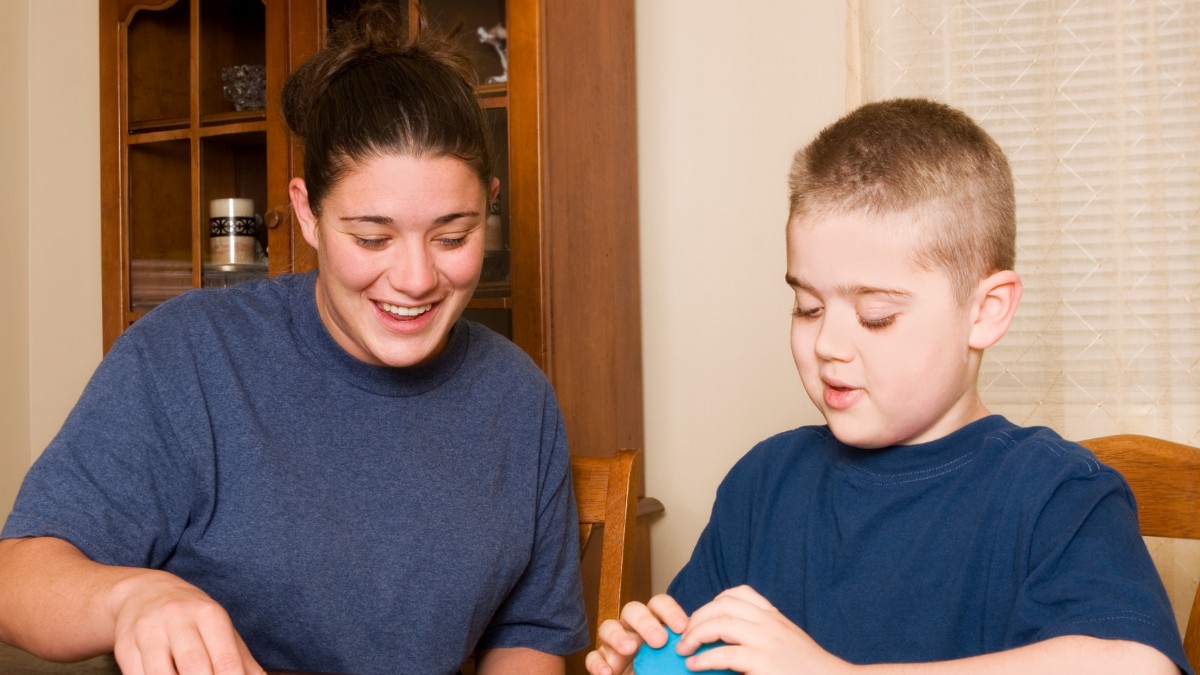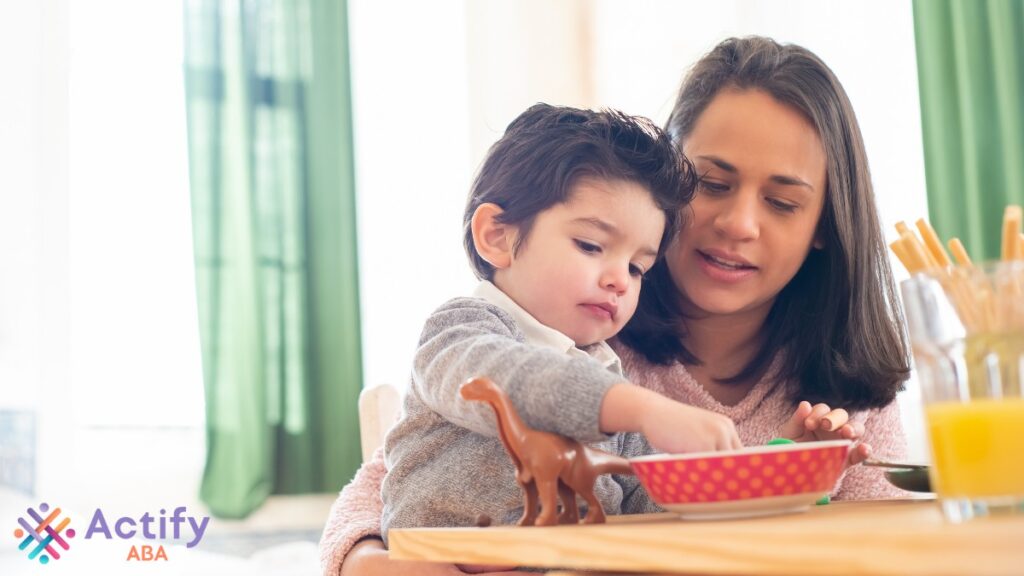
Key Points:
- In-home ABA therapy offers personalized, convenient support tailored to a child’s needs in a familiar setting.
- Parents can expect clear communication, data-driven progress tracking, and family involvement as part of the therapy process.
- The therapy focuses on building essential skills, reducing challenging behaviors, and promoting independence through structured, evidence-based interventions.
Navigating the world of autism therapy can feel overwhelming, especially when trying to find effective, accessible care for your child. For families in Maryland, ABA therapy in-home is a growing option that brings specialized behavioral support directly into your household. This approach not only reduces the stress of travel and unfamiliar settings but also allows therapists to work in the context where your child feels safest and learns best. If you’re considering in-home ABA therapy, here’s a detailed look at what you can expect throughout the process and how it benefits your family.
What Is In-Home ABA Therapy?
Before diving into what the experience looks like, it’s important to understand what ABA (Applied Behavior Analysis) therapy entails. ABA is an evidence-based intervention used widely for children with autism spectrum disorder (ASD) and other developmental challenges. It focuses on reinforcing positive behaviors and skills while reducing behaviors that interfere with learning or social functioning.
In-home ABA therapy simply means these services take place in your child’s own home, rather than in a clinic or school. This setting allows therapists to observe and address behaviors within your child’s natural environment, which often leads to more relevant and effective interventions.
How Does In-Home ABA Therapy Work?
To set clear expectations, it’s helpful to break down the typical structure and key components of in-home ABA therapy in Maryland.
- Initial Assessment and Goal Setting
Every journey starts with a thorough assessment. A Board Certified Behavior Analyst (BCBA) or qualified therapist evaluates your child’s strengths, challenges, and needs through observation and interviews with caregivers. This assessment forms the basis for a personalized treatment plan, with measurable goals targeting communication, social skills, daily living skills, and behavior management. - Individualized Therapy Sessions
Therapy sessions usually occur multiple times a week, lasting between 1 to 3 hours depending on your child’s age and needs. During sessions, a Registered Behavior Technician (RBT) or therapist works one-on-one with your child, using techniques like positive reinforcement, task analysis, and prompting to teach new skills. - Family Involvement and Training
ABA therapy doesn’t happen in isolation. Parents and caregivers are essential partners in the process. Therapists provide training and coaching to help families understand techniques and reinforce skills between sessions. This collaboration helps generalize progress beyond therapy time. - Continuous Data Collection and Progress Monitoring
ABA relies heavily on data. Therapists systematically track your child’s responses, skill acquisition, and behavior changes during sessions. This ongoing data collection allows the BCBA to adjust strategies as needed and keep parents informed with regular reports and meetings.
Benefits of In-Home ABA Therapy for Maryland Families
Choosing in-home ABA therapy brings several advantages that impact both the child’s progress and the overall family dynamic.
- Comfort and Familiarity: Therapy happens in a space where your child feels secure, reducing anxiety and making learning more natural.
- Real-Life Skill Application: Therapists can target behaviors as they occur in daily routines, from mealtime to playtime, making interventions immediately relevant.
- Flexible Scheduling: In-home sessions offer more adaptability around family schedules, minimizing disruptions to work or school.
- Stronger Family Engagement: Being directly involved in therapy builds caregiver confidence and helps create a supportive home environment.
- Reduced Travel Stress: Families save time and energy by avoiding long commutes to clinics or therapy centers.

Common Questions Parents Have About In-Home ABA Therapy
Starting therapy raises many questions. Here’s what most parents want to know upfront:
- How soon will I see progress?
ABA therapy is a gradual process. Some changes, like improved compliance or communication attempts, may appear within weeks. More complex skills develop over months. Therapists set realistic milestones to track meaningful gains. - How is privacy handled?
Therapists maintain strict confidentiality. Sessions are private, and family data is securely stored. You control how much information is shared beyond your immediate team. - What if my child resists therapy?
Resistance is common at first. Therapists use engaging, child-centered approaches to build rapport and gradually increase participation. Consistency and patience are key. - Can siblings be involved?
Yes. Siblings often play a role in therapy to encourage social skills and model appropriate behavior, especially when incorporated into natural interactions.
What Does a Typical In-Home ABA Session Look Like?
To give a clearer picture, here’s a breakdown of what a typical session might include:
- Warm-Up and Rapport Building: The therapist starts with familiar games or preferred activities to create comfort.
- Skill-Building Tasks: Using prompts and reinforcement, the child practices communication, fine motor skills, or social exchanges.
- Behavioral Interventions: Challenging behaviors are addressed through strategies designed to teach replacement skills and reduce triggers.
- Generalization Activities: Skills are practiced in real-world contexts, like sorting laundry or requesting help during mealtime.
- Parent Coaching: Near the end of the session, the therapist reviews progress and offers guidance to caregivers for reinforcement.
Key Areas Targeted in In-Home ABA Therapy
ABA therapy focuses on comprehensive development, and here are common targets for Maryland families:
- Communication Skills
Improving verbal language, sign language, or use of communication devices. - Social Skills
Enhancing eye contact, turn-taking, play skills, and understanding social cues. - Daily Living Skills
Teaching self-care tasks like dressing, toileting, and feeding to promote independence. - Academic Readiness
Building foundational skills such as attention, following directions, and problem-solving. - Behavior Management
Reducing tantrums, aggression, or self-injurious behaviors by understanding triggers and teaching coping strategies.

How to Get Started with In-Home ABA Therapy in Maryland
If you decide that in-home ABA therapy is right for your child, here’s a simple roadmap:
- Contact a Provider: Reach out to an ABA therapy provider with experience in in-home services.
- Insurance and Funding: Verify coverage or explore state-funded programs like Maryland Medicaid or Maryland Infants and Toddlers Program (MITP).
- Schedule an Assessment: Arrange for an initial evaluation by a BCBA to design your child’s treatment plan.
- Begin Therapy: Start sessions and maintain ongoing communication with your therapy team.
- Review Progress Regularly: Participate in monthly or quarterly meetings to adjust goals as needed.
Why Choose Actify ABA for In-Home ABA Therapy in Maryland?
When seeking in-home ABA therapy in Maryland, families want a provider who is not just qualified but also compassionate and collaborative. Actify ABA is one such company offering tailored, evidence-based ABA services delivered in your home.
Actify ABA focuses on creating individualized programs that respect your child’s unique needs and family routines. Their team includes certified therapists who bring a caring, flexible approach, making sure you’re informed and supported every step of the way. They emphasize measurable progress, family education, and sustainable skill development — helping children gain independence and confidence in their own environment.
Getting Started with ABA Therapy in Maryland
If you’re ready to explore in-home ABA therapy, Actify ABA in Maryland is a valuable resource for families seeking personalized care. Their approach combines expert knowledge with genuine support, offering hope and practical strategies for your child’s growth.
Reach out today to learn more about how Actify ABA can partner with your family. Embracing therapy at home may be the first step toward meaningful progress in a setting that feels safe and familiar. Your child’s path to skill-building and behavior improvement is just a call away.
If you have questions or want to start ABA therapy in Maryland, Actify ABA can guide you through the process with clear communication and a personalized plan designed for your child’s success. Contact Actify ABA for in-home ABA therapy in Maryland and begin the journey toward a brighter tomorrow.
